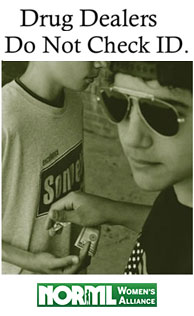This disturbing video from the always excellent Hungarian Civil Liberties Union documents some of the abuses in China and Southeast Asia regarding drug users.
The governments of Laos, Cambodia and Thailand received millions of dollars from Western governments to build camps to treat drug addicts. Tax payers in donor countries had no idea what is happening in these camps before Human Rights Watch documented the widespread human rights abuses.
Some people enter voluntarily in the hope of kicking their drug habit, others are sent there by their families who pay for their “treatmentâ€; but in some cities, it often happens that the military police just collect street children, drug users, sex workers and other groups on the street considered “deviant†by the authorities and detains them in a camp for years, without any due process or right of appeal. It’s easy to get in – but it’s hard to get out. Detainees are often forced to work for free, starved, beaten, tortured and raped – but they don’t get any treatment or rehabilitation.
Some of these abuses have stopped and a couple of camps have been closed down, but that hasn’t been because of any proactive efforts by western governments or the UNODC (United Nations Office of Drugs and Crime); rather, it’s only happened because human rights and harm reduction advocacy groups have convinced entities like UNICEF to stop funding these abominations.
In fact, Cambodia appears poised to actually increase the problems, based on new laws that the UNODC actually helped draft.
Among the concerns are provisions defining a drug addict as any person who “consumes drugs and is under the influence of drugs†(Article 4). The draft also contains no provisions exempting needle exchanges and other harm reduction organisations from prosecution under six articles relating to the “facilitation†of drug use. […]
Of greatest concern, however, are sections of the draft dealing with the involuntary treatment of drug users.
In January, Human Rights Watch reported on the conditions in seven Cambodian drug-detention centres, documenting the “widespread beatings, whippings, and electric shock[s]†of detainees. Under Article 109 of the draft, drug users can be forced into involuntary treatment for up to two years.
“In its current form, the draft law is worse,†said Joe Amon, director of HRW’s health and human rights division. “Drug users will be detained longer and there are inadequate guarantees that they’ll get appropriate treatment for drug dependency.â€
While Article 101 of the draft claims treatment and rehabilitation can only take place with the consent of drug users, it says treatment can be compelled in “special casesâ€, for the “benefit of the drug addict†or for the “common interestâ€. Naly Pilorge said that considering the government’s track record in arbitrary detention, such vague terms were “bound to be abusedâ€.
Gee, I wonder what kind of treatment people will be getting at these centers?
This month, the Council of Ministers approved plans for the country’s largest drug rehabilitation centre. Moek Dara, Secretary General of the National Authority for Combating Drugs, said the facility would be built on 20 hectares of land in Preah Sihanouk province donated by tycoon Mong Reththy, and would have a capacity of 2,000.
“We’re not forcing them to be bad, we’re forcing them to be good,†he said at the time. Mong Reththy added that internees would be invited to work on plantations that he owns nearby.
Invited. Ah.
So this was a set of laws that the UNODC actually helped draft? Was it one of their interns? Or, more likely, were they just there as a point of show… part of a larger interest that they have in Cambodia. In an internal document, the UNODC implied they had an entire legal team working on it…
The same document, however, also pointed out that the agency had not been able to ensure “that the penalty threshold for drug offences was lowered, that human rights were protected and that the law was consistent with harm reduction principlesâ€. Despite these concerns, it only recommended that the law be reviewed three years after its passage.
“UNODC has made public statements that Cambodia’s centres should be closed, while simultaneously working up a law to increase periods of compulsory ‘treatment’ in the centres,†HRW’s Amon said.
“Despite what they’ve said in public, the real behind-the-scenes technical assistance to the Cambodian government follows an old-fashioned ‘war on drugs’ mentality in which human rights concerns are an afterthought.â€
The UNODC has always (and especially in recent years because of the pressure of human rights and harm reduction groups) given lip service to the notion and importance of human rights yet they never seem to make that a priority compared to their interest in pushing for enforcement.
In this way, they’re very much like the ONDCP — they talk about good things, but put their money and time into the same old failed prohibitionist strategies.
Obviously, we’re in much better shape here in terms of the nature of our treatment facilities (although we’ve certainly had some very bad experiences historically.
Yet this troubling notion of compulsory treatment tied to an enforcement arm is prevalent here as well, often disconnected from any real individualized assessment of actual treatment need. In fact, we have well-respected academics who will put up with all the damage and abuse of prohibition just so the government can maintain the power to force people into coerced treatment for no greater crime than being a drug user.
There are some outstanding international harm reduction organizations that can help us develop effective needs-based treatment without coercion that will be more cost-effective and also provide better benefit to the individual and society.
We need to dismantle our prohibition machine and implement something that’s effective without the destruction. Then we need to be an example and take that out to the rest of the world, instead of exporting a drug war that causes death and abuse.



